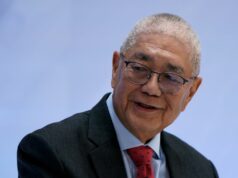Palace official expects budget to be signed before Easter break
THE PROPOSED 2019 national budget could be signed as early as this week and may not be allowed to lapse into law in its current form, according to Cabinet Secretary Karlo Alexei B. Nograles, who also signaled the possibility of a veto because such veto messages “happen every year.”
Mr. Nograles also said that it might be better if the period of effectivity of the 2019 budget is extended until “middle of 2020.”
“Before Holy Week, maaring mapirmahan ng Pangulo ’yan… Kasi kung lapsed into law ’yan, as is, kung anong sinubmit ng both Houses of Congress (“The President could sign the Budget bill before Holy Week…If he allows it to lapse into law as is, then the version submitted by both Houses of Congress (will be enacted)” Mr. Nograles told reporters at the Palace on Monday night.
He added: “Vini-vet na ngayon, pinag-aaralan na (We are vetting the budget) and we are hopeful that the President will sign the budget maybe this week or next week, hopefully before the Holy Week.”
The Holy Week or Easter holidays include Thursday, April 18, and Friday, April 19, though many workers typically take the week off.
Asked if there will be a veto, he said: “Every year naman may veto message naman ang Pangulo (every year there is a veto message) and that’s part of the prerogative of the President… and before he signs it kasama dyan ’yung pagvi-vet at pagfa-finalize ng veto message (the process of signing includes vetting and finalizing the veto message), so ideally, by practice, and historically, there is always a veto message.”
On the possible items that will be vetoed, he said the Cabinet has not discussed the matter.
Asked to comment on the infighting that led to the budget delays and the reenactment of the 2018 budget and what could have been done to avoid it, he said: “As far as the Executive Branch is concerned, on time naman (it was on time). In fact, the Executive gave the National Expenditure Program to Congress much, much earlier… during the State of the Nation Address.”
“It really depends on both Houses of Congress (how fast they transmit the General Appropriations Bill) to the Executive Branch.”
He added that the effectivity period of the 2019 budget needs to be extended until the middle of 2020.
“Maaring until mid of 2020 ang dapat na ma-expand ang budget na ito or maaring sa next Congress hingi ka ng joint resolution sa Congress na ito extending the effectivity of the budget. (We might ask the next Congress for a joint resolution to extend the effectivity of the 2019 budget until the middle of 2020),” he said, in order not to disrupt the key projects in the pipeline for 2020. — Arjay L. Balinbin



